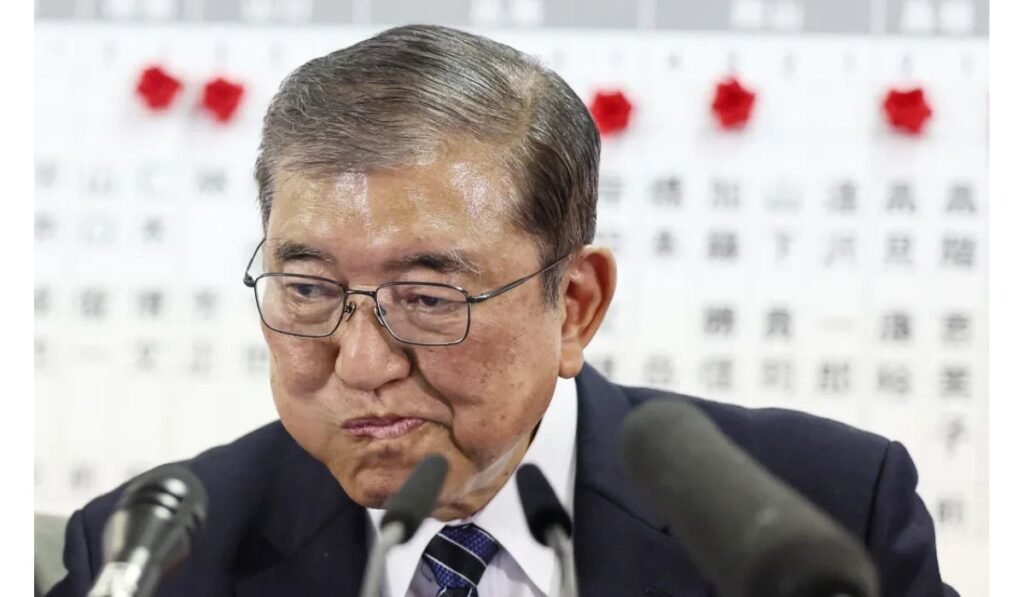Seoul, South Korea — Japan entered a phase of political instability on Monday after the ruling party experienced its worst election result in 15 years. This outcome placed intense pressure on Prime Minister Shigeru Ishiba to resign and raised questions about the next government’s structure. #JapanPoliticalInstability
In Sunday’s vote, the Liberal Democratic Party (LDP) and its coalition partner, Komeito, failed to secure a majority. This result triggered a search for smaller allies to form a government within 30 days.
Ishiba, who took office only last month, aimed to strengthen his leadership with this election. However, the election’s results countered his hopes, fueled by public outrage over a funding scandal and rising living costs.
The ruling coalition won only 215 seats, falling short of the 233 needed for a majority. This result marked the LDP’s worst since 2009, when the party lost power for four years.
“The result is that the Japanese political system is indeed entering a new and uncertain period,” said Tobias Harris, founder of Japan Foresight, a political risk advisory company.
Despite major gains, the opposition remains too fragmented to govern effectively. Many parties refuse to join a coalition with the LDP and Komeito, complicating future steps.
Some analysts suggest that the LDP and Komeito may try to form a minority government. They could rely on smaller center-right parties to pass legislation case by case.
However, this approach might not be “particularly stable,” as it would face collapse if it fails to meet opposition demands, Harris noted in a blog post.
Another consideration is Ishiba’s future. Last month, he defeated his conservative rivals within the LDP, including those loyal to former prime minister and conservative icon Shinzo Abe.
But the election outcome weakened Ishiba and the Abe faction. Many Abe loyalists lost seats after becoming entangled in the slush fund scandal.
While Ishiba has shown interest in forming a new government, analysts question his longevity as LDP leader, especially with an upper house election looming in July. #JapanPoliticalInstability
Opposition Divisions and Coalition Challenges Deepen Japan’s Political Instability
Moreover, opposition parties, although gaining ground, remain divided on critical issues. Many have ruled out joining forces with the ruling coalition, complicating the path forward. With diverse interests in play, Japan political instability may lead to policy gridlocks and increased challenges for effective governance.








